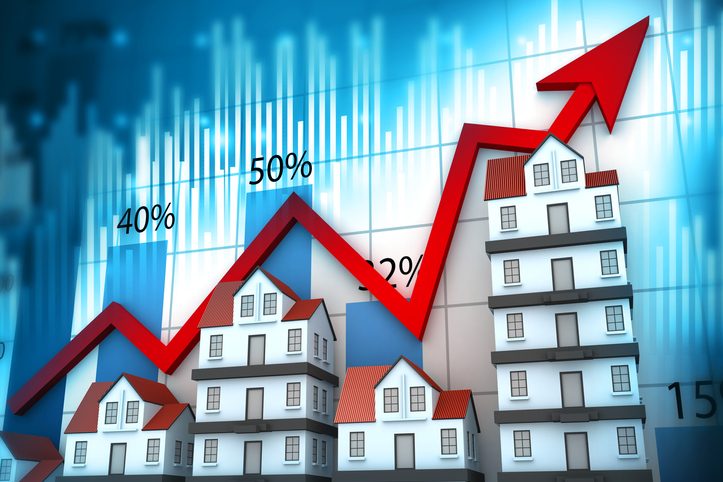The decision to buy or sell property is one of the most significant financial decisions that a person can make. With constantly changing market conditions, it can often feel like an overwhelming task to determine the best time to enter the real estate market.
Many individuals ask themselves, “Is it a good time to buy or sell?” The answer to that question depends on several factors, including the current economic climate, interest rates, housing supply, and demand. In this article, we will delve deep into the factors that influence the real estate market and help you understand when it might be the best time for you to buy or sell.
Understanding the Real Estate Market Dynamics
Before diving into whether it’s a good time to buy or sell, it’s important to have a basic understanding of how the real estate market operates. The market is driven by a combination of supply and demand, and several factors can influence these elements. These include interest rates, the overall economy, regional market conditions, and government policies. The interaction of these elements can create both opportunities and challenges for those looking to make a move in real estate.
Economic Factors Affecting the Market
Interest Rates and Financing
One of the most influential factors when deciding to buy or sell a property is the state of interest rates. Lower interest rates typically make borrowing money more affordable, which can make buying property more appealing. For sellers, lower interest rates can also create increased demand as buyers are more willing to take out loans due to the lower monthly payments.
On the other hand, higher interest rates can have the opposite effect. When rates rise, the cost of borrowing increases, which can reduce the pool of potential buyers. For sellers, this could mean that homes stay on the market longer, and they may need to lower their asking price to attract buyers. It’s essential to keep an eye on central bank policies and interest rate changes, as they can directly impact your ability to buy or sell.
Economic Stability and Job Growth
The overall health of the economy also plays a critical role in determining whether it is a good time to buy or sell. When the economy is stable and unemployment rates are low, people are more confident about making large investments like purchasing a home. This can lead to higher demand and rising property prices.
In times of economic uncertainty or recession, however, people may hesitate to make big financial commitments, including buying a home. Job losses, reduced income, and economic instability can make buyers more cautious, leading to decreased demand in the real estate market. For sellers, this could mean that their property may not sell as quickly, or they may have to reduce the asking price to compete with other properties on the market.
Inflation and Housing Prices
Inflation can also have a significant impact on the real estate market. As the general price level of goods and services rises, so too do housing prices. Sellers may find that their properties increase in value, but buyers may struggle to afford the higher prices. This creates a delicate balance between supply and demand. In a high-inflation environment, it may still be a good time to sell, but for buyers, it might mean waiting for the market to stabilize or finding ways to adjust to the higher cost of living.
Local Market Conditions
Housing Supply
The supply of homes available in the market is a crucial element to consider when deciding whether to buy or sell. In a seller’s market, there are more buyers than available homes, which can drive up prices and reduce the time properties spend on the market. This is a great time for sellers to capitalize on the high demand and sell their properties quickly and at a higher price.
On the other hand, in a buyer’s market, there is more inventory than demand, and buyers have more options. This can lead to lower prices and give buyers more negotiating power. If you’re looking to purchase a home in a buyer’s market, you might find better deals, as sellers may be more willing to negotiate to close the sale.
Regional Market Differences
Real estate markets are highly localized, meaning the conditions in one city or neighborhood can differ significantly from another. National trends like interest rates or inflation may influence markets, but local factors such as the availability of jobs, the desirability of the location, and the overall health of the local economy can have a significant impact on the real estate market.
For example, a booming tech industry might drive up home prices in a particular city, while another area experiencing population decline could see lower demand and more affordable prices. As a potential buyer or seller, it’s important to research the local market conditions and talk to a real estate agent who understands the unique characteristics of the area you’re interested in.
The Impact of Government Policies
Government policies can also play a major role in shaping the real estate market. Tax incentives, mortgage subsidies, and government-backed loans can encourage buyers to enter the market. For example, first-time homebuyer programs and down payment assistance can make purchasing a home more accessible for some individuals.
On the flip side, government policies that restrict lending, increase property taxes, or impose stricter regulations can make it more difficult for buyers to qualify for loans and may decrease demand for homes. Sellers should also be aware of any policies that could affect the market, such as zoning laws, which can influence property values and marketability.
Assessing Your Personal Situation
While market conditions are a critical part of the decision to buy or sell, your personal situation is equally important. Your financial stability, future plans, and long-term goals should play a key role in your decision-making process.
Your Financial Readiness
Before deciding to buy a property, it’s crucial to assess your financial health. This includes evaluating your credit score, available savings, and debt-to-income ratio. Lenders will look at these factors to determine whether you qualify for a mortgage, and the terms of that mortgage will depend on your financial situation. If you’re in a strong financial position, it may be a good time to buy, especially if interest rates are low.
For sellers, evaluating your financial goals and needs is just as important. If you’re selling to upgrade to a larger home, downsize, or relocate, make sure that the sale of your property will allow you to achieve these goals. Additionally, consider whether the market conditions are favorable enough to maximize your sale price.
Long-Term Goals and Stability
Real estate is often a long-term investment, and your decision should align with your long-term financial and personal goals. If you’re looking to buy a home, consider whether you plan to stay in the property for an extended period or if you’re looking for a short-term investment. If you’re purchasing with the intention of flipping the property, you’ll need to take into account market trends, potential renovations, and the time it may take to sell the property at a profit.
For sellers, think about your own life plans. Are you moving for a job or personal reasons? Are you looking to downsize as you approach retirement? The timing of your sale should be based not only on market conditions but also on your personal goals and future stability.
When is the Best Time to Buy or Sell?
The best time to buy or sell is highly subjective and depends on a variety of factors, both market-related and personal. However, there are some general trends that can help guide your decision.
The Best Time to Buy
Typically, the best time to buy is when mortgage rates are low, and there is a good balance of inventory. During the fall and winter months, there are usually fewer homes on the market, but motivated sellers are often willing to negotiate on price. If you can find a home in this off-peak period, you may be able to purchase it for a lower price than during the more competitive spring and summer months.
However, buying a home also depends on your personal financial situation and goals. If you’re financially ready and can secure a favorable mortgage rate, there may be no need to wait for market conditions to shift. The right time to buy is when you’re prepared to make the investment and commit to homeownership.
The Best Time to Sell
For sellers, the spring and summer months are often the best times to list a home. During these months, there are typically more buyers looking, and homes tend to sell faster and at higher prices. However, if you’re in a strong seller’s market, you may be able to sell at a premium during other times of the year as well. If you’re considering selling, it’s important to weigh your personal timing with the broader market trends.
Should You Buy or Sell?
In conclusion, deciding whether it is a good time to buy or sell is a multifaceted decision that depends on both market conditions and your personal financial situation. By understanding key factors like interest rates, local market conditions, and government policies, as well as your own financial readiness, you can make an informed decision that aligns with your goals.
While no one can predict the future of the real estate market with certainty, being proactive and informed can help you navigate this important decision. Whether you’re buying your first home or selling an investment property, take the time to research the market and speak with professionals who can help guide you through the process. The right time to buy or sell is the one that suits your needs and long-term goals.

